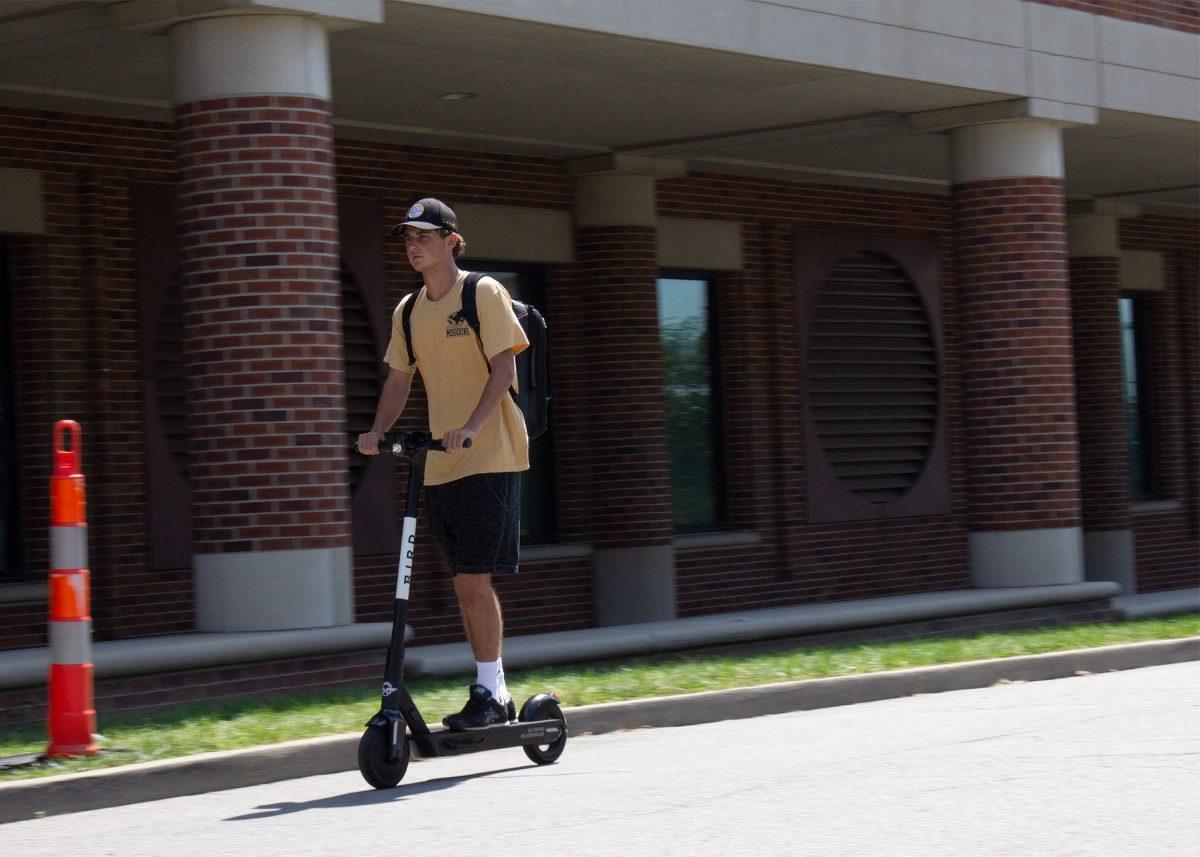
Any person using Bird scooters in Columbia recently found themselves met with a warning — they could face a $100 fine.
These fines, implemented by Bird in cooperation with MU and the city of Columbia, are for illegal parking of scooters by riders. This includes blocking sidewalks, ramps and access to crosswalks.
For this reason, in the warning about the potential fines, Bird recommends that riders park their scooters at bike racks. Any fines will be charged directly to the rider through the app.
“As a company committed to improving mobility in the cities in which we operate, it is very important to us that our riders and community members are respectful of the public right-of-way and all persons who use it,” Bird spokesperson Mackenzie Long said in an email.
Members of the community have taken notice of the illegal parking of Birds on sidewalks and ramps around the city, freshman and Columbia resident Thomas Mengesteab said.
“They’re often parked places where you have to walk around them or move them,” Mengesteab said. “If you’re in need of one that might be a good thing, but personally I have to walk around them.”
What equates to a minor inconvenience for students like Mengesteab can be major for those with disabilities. That concern has long been on the minds of politicians and activists. So much so that it was the subject of a Columbia Disabilities Commission meeting in September 2018.
“I am hopeful that they will pursue better tracking of where the scooters are parked so they become less of a problem for people on the sidewalks,” commissioner Ann Marie Gortmaker told the Columbia Missourian after the meeting.
Bird says that they have done just that, and with fines, they now have a way of enforcing their existing policies.
In addition to fines, Bird rolled out other changes to their scooter-share program. Taking a ride still costs $1 to start, but now the charge per minute is 29 cents when it was 10 cents previously. This is in response to regulations placed on Bird by the city of Columbia and MU that charge the company a fee of $1 per day per scooter in service.
Other major changes include the implementation of slow zones in certain areas of the MU campus. This change came at the request of the university and is intended to make crowded areas safer for riders and pedestrians, Long said.
Mengesteab worries that the increase in cost and potential for fines will discourage people from riding with Bird.
“The fines and price increase can make a lot of people, including myself, not use them as much because it eventually adds up,” Mengesteab said.
Even in the face of those concerns, Long said that Bird is committed to having a positive and co-beneficial relationship between Bird, the city and MU.
“We greatly appreciate the partnerships we have with the city and university, and hope to continue to find ways for our service to more seamlessly be integrated into the city’s fabric,” Long said in an email.
_Edited by Laura Evans | [email protected]_